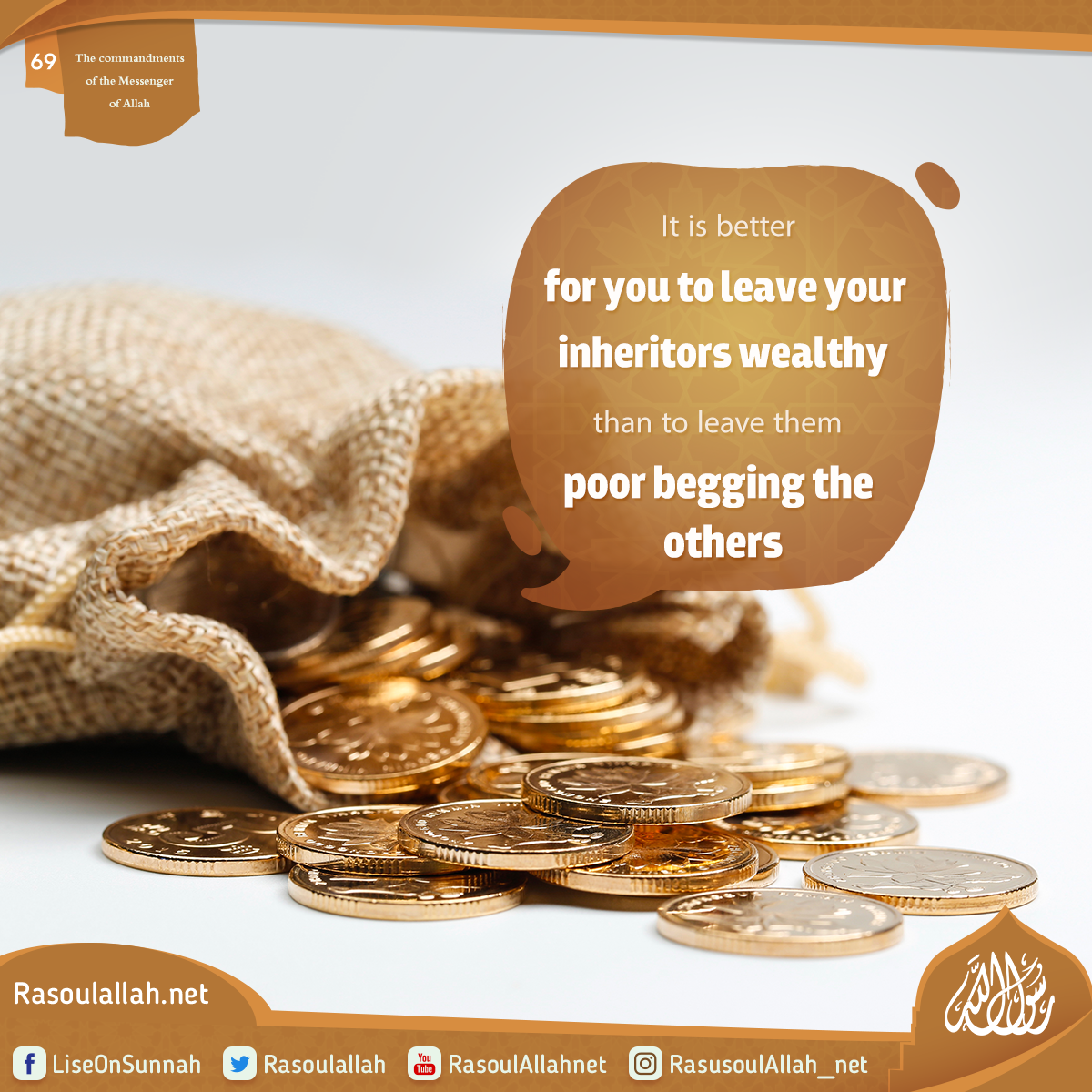It is better for you to leave your inheritors wealthy than to leave them poor begging the others

Narrated Sa`d ibn Abu Waqqas may Allah be pleased with him: The Prophet (may the peace and blessings of Allah be upon him) came visiting me while I was (sick) in Mecca, ('Amir the sub-narrator said, and he disliked to die in the land, whence he had already migrated). He (i.e. the Prophet) said, "May Allah bestow His Mercy on Ibn Afra." I said, "O Allah's Messenger! May I will all my property (in charity)?" He said, "No." I said, "Then may I will half of it?" He said, "No". I said, "One third?" He said: "Yes, one third, yet even one third is too much. It is better for you to leave your inheritors wealthy than to leave them poor begging the others, and whatever you spend for Allah's sake will be considered as a charitable deed even the handful of food you put in your wife's mouth. Allah may lengthen your age so that some people may benefit by you, and some others be harmed by you." At that time Sa`d had only one daughter.
The Messenger of Allah, may the peace and blessings of Allah be upon him, gave reason for this answer by saying:"It is better for you to leave your inheritors wealthy than to leave them poor begging the others".
The intended meaning: It is better for you and your heirs to leave them rich than to leave poor heirs begging the people who may put something in their hands, which will be a humiliation to them in this world and in the Hereafter.
What is meant by the richness in this Hadeeth is the self sufficiency, not the superfluity of money.
He who has enough food, drink and housing, it is as though he possessed the whole world. Otherwise, his heirs will be a burden on other people; begging them for charity.
The Muslim is responsible for his dependants as long as he has the means to support his heirs after he passes away.
Man is but a good recolle
ction, and to be mentioned with goodness is considered a second age for man. Therefore, man should leave righteous prints including leaving money for his heirs.
His money may benefit him if he lived long, so he should not rush to spend all of his money or even half or one third of it as long as he hopes to live and act righteously.
If he is to leave a bequest then he may do within one third of the legacy.

